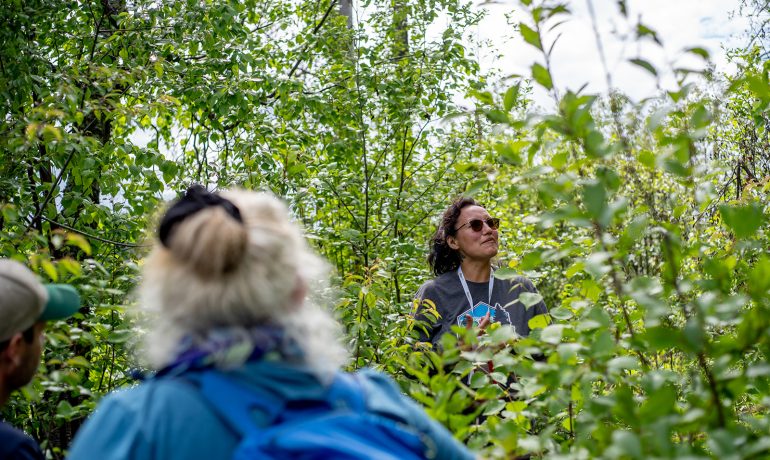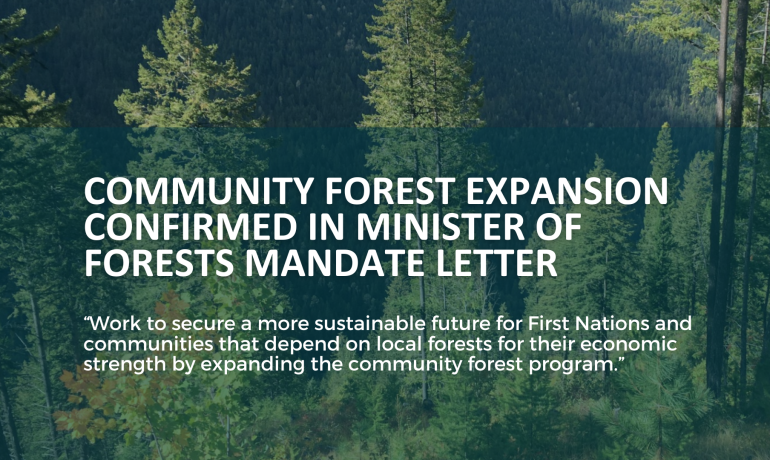From Derek Penner, Vancouver Sun
The small town of Clearwater has sight of a future for forestry, though the community is still just eight months removed from losing a major employer, Canfor Corp.’s sawmill at Vavenby, some 27 kilometres down the highway, according to Mayor Merlin Blackwell.
That closure left Clearwater and the surrounding region reeling with the loss of 172 jobs that aren’t coming back.
But getting started on that future vision depends on provincial approval of a transfer of Canfor’s timber rights to rival Interfor Corp., which bought its tenures to shore up its own mill at Adams Lake.
“This is killing us,” Blackwell said, of the waiting for Forests, Lands and Natural Resource Operations Minister Doug Donaldson to make a decision. “This is the biggest problem we have right now.”
Approval would mean a restart to logging, which would be a measure of relief for contractors who “have been running on vapours” since Canfor’s closure, and help companies, Simpcw First Nation and community groups get the ball rolling on future planning.
It is a future that will involve an investor purchasing Canfor’s sawmill site for industrial redevelopment, a strategy to pursue opportunities to use wood waste as biofuel and potentially value-added wood manufacturing.
“It’s still going to be 75-cents-on-the-dollar, at best of the industry that existed a year ago,” Blackwell said. But it’s something, it’s a start.”
Clearwater has been working on its vision, in part, through a working group convened by the District of Clearwater, which at its last meeting Jan. 25, heard from Quesnel Mayor Bob Simpson about his city’s initiatives to make a transition with its forestry sector.
“(They’ve) blazed the trail before us and come out the other side, or are coming out the other side,” Blackwell said.
B.C.’s forest industry hit a crisis this past summer, with shrinking timber supplies, a poor market and high stumpage costs contributing to some 6,000 short-term layoffs and more than 500 permanent job losses to five permanent mill closures.
The government is supportive of transition efforts being devised by communities such as Clearwater and Quesnel, said Ravi Kahlon, MLA for Delta North and Parliamentary Secretary to Donaldson, though he didn’t have insight on when the minister will have a decision on that tenure transfer.
“We know it’s going to take community by community solutions,” Kahlon said.
The province’s first priority in the crisis has been to offer direct support to displaced workers at mills that have permanently closed with assistance for early retirement, support for retraining for those who want to move into other jobs, Kahlon said.
“Our No. 1 goal was to stabilize these communities and ensure that people, if they can, if they are close to retirement, can retire and stay in the community,” Kahlon said. “Now, our next phase of our work is to ensure that we can support these communities in their transition.”
For some, that means focusing on tourism, others want support for better broadband internet connectivity as an attraction for a new-technology business base, Kahlon said.
And the province is on board for much of what Quesnel is working on, Kahlon said.
“I think that their vision is aligned with our vision,” Kahlon said. “We know that we are going to go toward high value (wood products) from the high volume model that we’ve had.”
“And (Quesnel Mayor Bob) Simpson saw the writing on the wall a long time ago and started preparing his community,” Kahlon added.
Inviting Quesnel to apply for a community forest license is one support that the province is offering the town for its efforts, along with helping fund a Forest Innovation Centre, for which Simpson is appreciative.
“We’ve lost (Tolko Industries Ltd.’s Quest sawmill), but we still have huge manufacturing capacity here,” Simpson said. “So we can ask the question of how do you evolve that to deal with what we can get off a blown out land base.”
“We think we’ve got the pieces here that allow us to see what reinvention looks like.”
What the city is aiming for as a community forest would be within a 22-kilometre radius from the centre of Quesnel, which would give it room to clear fire breaks in its rural-urban interface zones, conduct fuel management work to mitigate their forest fire risk and to build trails.
The city has an extensive integrated trails network, Simpson explained, but getting trails designated and protected within a timber license can be a difficult argument, but easier in one that the city oversees.
Quesnel will need more co-operation from the province, but Simpson said he senses an understanding of what the city is trying to accomplish.
“But I’d have to say right now, we’re being well received,” Simpson said. “People are interested in what we’re doing. And they’re looking to enable us. We’re not feeling, you know, kind of a broad base resistance to what we’re doing.”
Image: Lacy Scuffi, co-ordinator and Erin Robinson forestry initiatives manager at Quesnel’s Forestry Innovation Centre with the city’s Mayor Bob Simpson.
Related Post
As Published in Canadian Forest Industries Magazine, Pulp & Paper Magazine and Canadian Biomass Magazine
Jennifer Gunter’s Op Ed, “Community Forests: Rooted in Community,
Minister of Forests Mandated to Expand BC’s Community Forest Program
In the recently released mandate letter to the Minister



